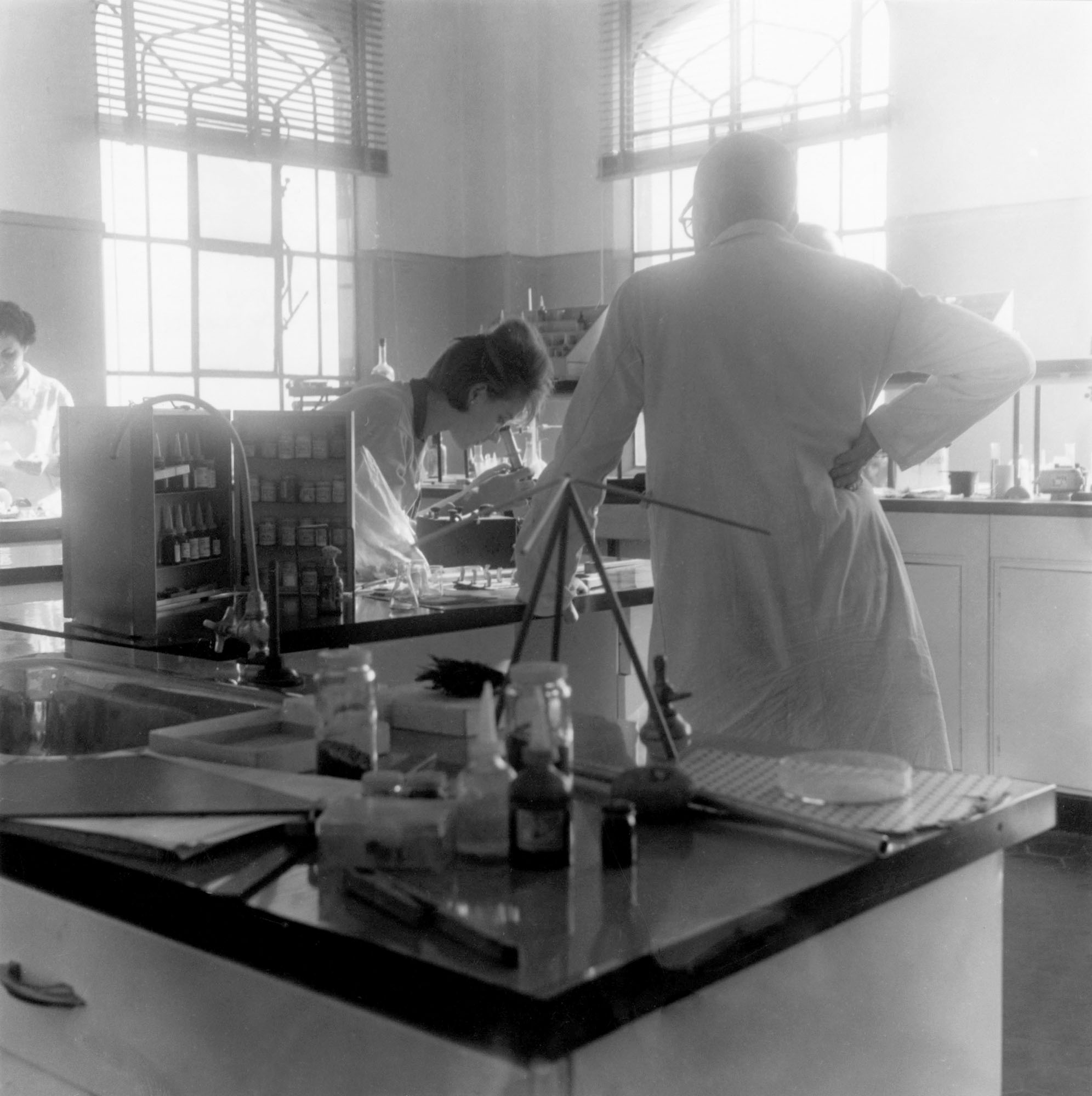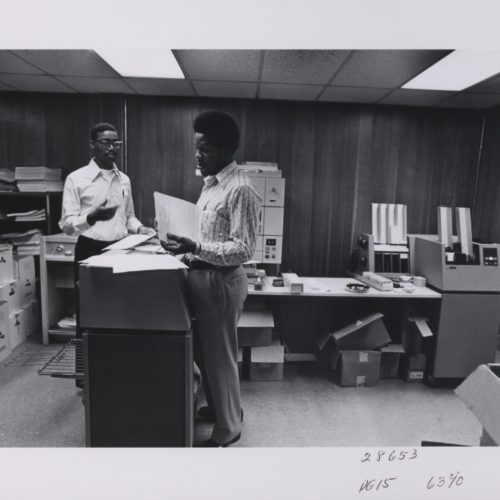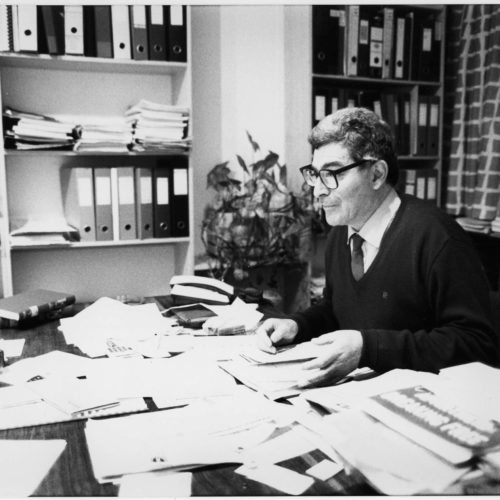In this edition of New Research, we offer a snapshot of some recent use of our archival collections. Available here are newly published reports submitted by RAC travel stipends recipients who have pursued their studies in our reading room. These reports showcase a wide range of collections spanning different time periods, geographic locations, and disciplines. For this edition, records from the Rockefeller Foundation and the Office of the Messrs. Rockefeller of the Rockefeller family archives, as well as the papers of John Z. Bowers and Harold H. Loucks have been cited. You are encouraged to read through these reports from our reading room visitors and discover a bit about the wide range of topics covered and research approaches used.
“The Pedagogy of Race: The Peking Union Medical College and Its Effects on Chinese Socio-Medical Scientific Discourse, 1912-1949” by Matthew Foreman
In his report, “The Pedagogy of Race: The Peking Union Medical College and Its Effects on Chinese Socio-Medical Scientific Discourse, 1912-1949,” Matthew Foreman looks into a previously unexplored chapter in the history of the Peking Union Medical College (PUMC). This college, established to educate and train Chinese students in Western medicine, also became involved with international networks of professionals conducting eugenics research. While in hindsight we reject these notions of “race science” that led to discriminatory policies and unspeakable horrors, in the early twentieth century, eugenics was a largely accepted branch of modern Western science. Matthew Foreman traces the careers of a handful of eugenicists who came to PUMC. These scientists wanted to study China’s “racial problem” and initiated a Chinese embryo collection project in the 1920s, with the idea of analyzing the embryos to create a racial standard. Their goal was then to compare this standard to other races and draw conclusions about superiority and inferiority, as well as the “consequences” of miscegenation. While the project was cut short by the outbreak of the Sino-Japanese War, Matthew Foreman argues that this project was still historically significant, as it demonstrated the growing networks connecting Chinese science and medicine with the wider scientific world, as well as the role that PUMC had in the process.
Matthew Foreman is a doctoral candidate at Northwestern University. He specializes in the intellectual and social history of modern China. His research to date focuses on the coevolution of scientism and Chinese nationalism in twentieth-century China. In particular, his research analyzes the social history of “mixed-blood” (混血) communities in China against the backdrop of intellectual and political change. Matthew Foreman was a 2020 RAC research stipend recipient.
“The Role of the Rockefeller Foundation in Malaria Vaccine Research, 1970s-1980s” by Kirsten Moore-Sheeley
Kenneth W. Thompson headed the Rockefeller Foundation’s Health Sciences Division during the late 1970s and much of the 1980s. During his tenure, one of the division’s major undertakings was the “Great Neglected Diseases of Mankind” (GND) initiative. In her research report, Kirsten Moore-Sheeley looks at the GND’s work to create a vaccine for malaria. Aimed at fighting a major scourge of the Global South, the RF hoped that it could reverse the decreasing efficacy of interventions against this parasitic disease. Breakthroughs in immunology, molecular biology, and genetics research held new promise that funding laboratory investigations at diverse research institutions, supplemented by supporting field work in different tropical regions could bring about the desired results. From her study of the Rockefeller Foundation records about this program, Dr. Moore-Sheeley observes that while the GND initiative did not achieve its final goal of a malaria vaccine, it was instrumental in fostering a research infrastructure for critical progress made against malaria in subsequent decades.
Kirsten Moore-Sheeley is a research assistant professor at Cedars-Sinai Medical Center. Her research interests include the history of biomedical research and technology and the history of infectious disease. She was a 2023 RAC research stipend recipient.
“Escaping Totalitarian Regimes to Keep Studying the Past: Ancient History Refugee Scholars between 1917 and 1948” by Francesco Mocellin
Francesco Mocellin’s research report, “Escaping Totalitarian Regimes to Keep Studying the Past: Ancient History Refugee Scholars between 1917 and 1948,” traces the paths of two scholars of ancient history who were forced to flee totalitarian regimes due to persecution. He notes that while the rescue of scientists and social scientists has already garnered the attention of many historians in recent decades, much less has been written to date about the humanities intellectuals who were saved. While the stories of Elias Bickerman and Arnaldo Momigliano are, in some ways, very different, there are significant overlaps. Bickerman and Momigliano are both celebrated as two of the luminaries of twentieth-century ancient history studies; they were both Jews who lost their careers due to anti-Jewish racial law during the 1930s and their lives were endangered by Nazi genocide. As recipients of support from the Rockefeller Foundation’s displaced scholars program, both professors ultimately found employment (and safety) in lands beyond the reaches of Hitler’s Final Solution. As part of his study, Francesco Mocellin points out that international networks of scholars and smaller nonprofit organizations were also important elements in this rescue process.
Francesco Mocellin is a doctoral candidate in the humanities at both Padua University and Ca’ Foscari University of Venice, studying the ideologies of classicism in interwar Western Europe. He was a 2020 RAC research stipend recipient.
“Elites, Progressivism, and the Quest for a Transnational Community: The Institute of Pacific Relations and US-China Relations, 1925-1950″ by WU Lin-chun
In “Elites, Progressivism, and the Quest for a Transnational Community: The Institute of Pacific Relations and US-China Relations, 1925-1950,” WU Lin-chun traces the role of the Rockefeller Foundation in fostering China-US social science networks through its support of the Institute of Pacific Relations. She explains that many of the Chinese students returning from studies at US academic institutions incorporated elements of the American progressive perspective of the era in applying social science methods to try to solve China’s rural, social, and economic problems and suggest reforms. Some went on to become important policymakers and economists in government service during a very turbulent period of Japanese invasion and civil war. Professor Wu observes that at the very time that these new Chinese professional elites were fostering academic and cultural ties with the United States, they were themselves removed from the realities of a new China after 1949, and therefore can be seen as the innocents of the American “loss of China.”
WU Lin-chun is a professor of history at National Taiwan Normal University. Her research interests include the history of US-China relations in the areas of academic networks and business and technology collaborations. She was a 2023 RAC research stipend recipient.
About the RAC Research Stipend Program
The Rockefeller Archive Center offers a competitive research stipend program that provides individuals up to $5,000 for reimbursement of travel and accommodation expenses. Learn more on our Research Stipend page.



